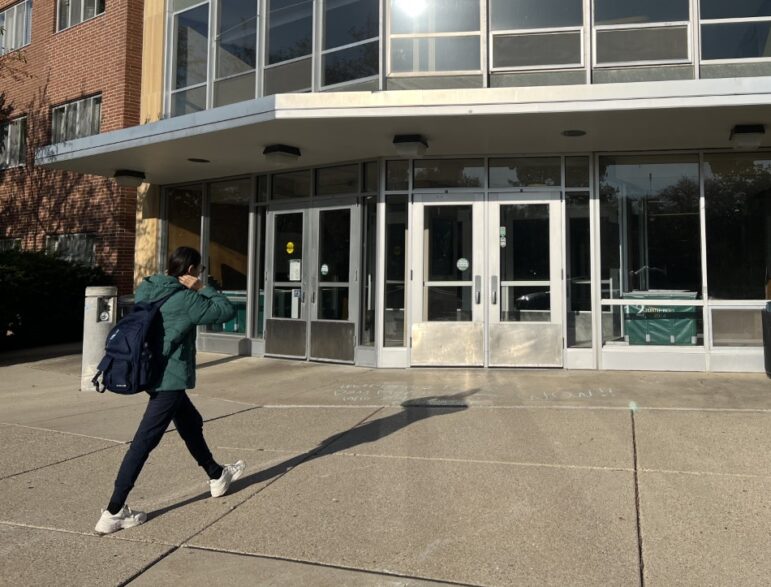
Alexandra Simmons
A student walks toward Wilson Hall, one of five MSU dorms used for transitional housing in the fall.Michigan State University is extending its two-year live-on campus housing requirement due in part to a large incoming freshman class.
According to the school’s Fall enrollment report, 11,054 undergraduates including incoming freshmen and transfers were welcomed this year. “The large incoming freshman class did create the need for transitional housing,” said Bethany Balks, the leader of MSU’s Residence Education and Housing Services communications and marketing unit.
“It was really early May when we realized, “OK, we are actually going to have a lot of first-year students coming here,” said Balks. She said that in recent years, deposits for housing had been made later which created the need for transitional housing. Move-in day reduced the amount of extra space needed. “Not that many students ended up in transitional housing once they got to move in,” she said. “She said the university had fewer than 40 transitional rooms.
Freshman Mikayla Andrew said, “They sent an email that housing assignments were out, and I checked my account and there were two names listed under roommates, then a couple of days later they sent out an email about being in transitional housing and what it means,” said Andrew. “Our third person transitioned out before we moved in, so I never really had to experience it,” she said.
According to the school’s website, Akers, Hubbard, Armstrong, Bryan and Wilson Halls would be used for transitional housing in fall 2022.
The school was able to help those who were going to be placed three to a room. “The only benefits of having a third roommate is that you get money off of your housing tuition,” said student Kenzy Sluiter.
Balks said, “We believe there will be some portion of transitional housing. I think we are going to continue to see MSU recruit larger class sizes. We learned some things this year on how it went, so we do not anticipate on having as large of a number of transitional housing for the next time around.”
Balks said the two-year live on requirement was designed to help students. “It was something that university leadership had been looking at for many years in relation to students’ success,” she said.
Andrew said, “I don’t like it, especially since they don’t have enough spots to give everyone a normal room.”
Andrew said requiring second-year students to love on campus made it harder for upperclass students who wanted to live in the dorms. “It absolutely did impact our upperclassman students because yes, we had to think and look at occupancy management and see how many spaces we could offer to students in their third-fourth grad years.”